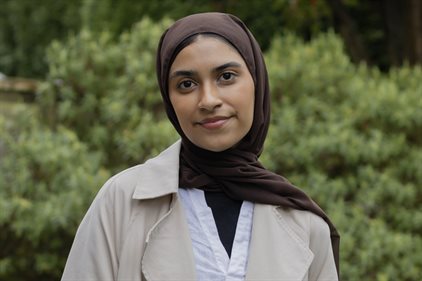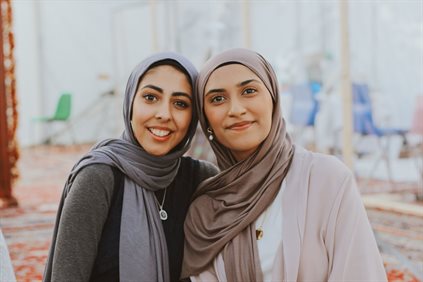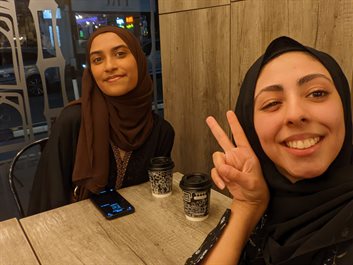Blog: What Ramadan means to me
Written by Student Content Shaper Fatema Rajabali
Have you ever found yourself curious about what it’s actually like to fast during the month of Ramadan? You might have heard that 1.6 million people observe it each year; but what does the month involve?
I’m Fatema, a final-year Sociology student and a Student Content Shaper. In this blog, I’ll be giving you an insight into my life, and how I celebrate Ramadan. I invite you to learn something new and to celebrate the diversity of our student culture here at UoB!

What is Ramadan?
First, let's dive into the heart of it all…
Ramadan is the ninth month of the Islamic lunar calendar when the new moon is sighted. It’s also the month where the Holy Quran was revealed to the Prophet Muhammed (peace be upon him), the final messenger of Islam.
We use this time to self-reflect, perform good deeds, and engage in fasting and prayer. The end of Ramadan is marked by a special celebration known as Eid al Fitr – which translates to ‘festival of breaking the fast’. During this time, communities come together to pray and distribute charity or ‘Zakat’ to those that need help. Families will also exchange gifts, share a tasty meal, and wear new clothes. Here I am with my friend celebrating Eid last year.

What is fasting?
Known as ‘Sawm’ in Arabic, fasting is one of the five pillars of Islam in which able-bodied Muslims abstain from food and drink from sunrise to sunset. The elderly, those who are sick, pregnant women, those who are menstruating, and children are not required to fast. Sawm goes beyond refraining from food; it's about feeding the soul, developing self-control, gratitude, and overall becoming the best version of yourself!
‘Iftar’ is the name of the meal consumed by Muslims at sunset to break their fast, while ‘suhoor’ is the meal eaten at sunrise before beginning your fast. A key benefit of fasting is that it helps you connect with those who are less fortunate by empathising with their lack of access to basic necessities like food.
I’m a non-Muslim reader. How can I support others during this month?
Since our University is diverse, chances are, you’re likely to have Muslim peers on your programme, but, you may not know how to best show your support to your peers. Here are my three top tips on how to thoughtfully do so:
- Stay mindful: your friends might appreciate having a quiet space to observe their daily prayers. Consider organising inclusive society events that respect this. Likewise, adjusting mealtimes is a great way to accommodate others.
- Be curious: don’t be afraid to ask questions! Being genuinely interested is a great way to learn more and build stronger connections with your peers.
- Be open-minded: If your Muslim pals invite you to iftar, embrace the opportunity and go for it!. Sharing in this tradition not only strengthens your bond, but also celebrates the wonderful diversity we have at UoB.
What does Ramadan mean to me?
Ramadan for me is a chance to reset, reconnect and work towards my faith-based goals.
The demands of daily life can be overwhelming. You may not get to spend quality time with others, or you may feel unbalanced. However, during this month, Ramadan offers a chance to hit the reset button; I can realign my priorities to lead a more well-rounded and mindful lifestyle.
Personally, I’ve found solace intaking part in charity sports activities such as cycling. I also find that fasting urges me to think about how my actions might affect others around me This extra awareness gives me the chance to reflect on where I might need to improve and mend any rifts in my personal relationships.
One important aspect of Ramadan that means a lot to me is the sense of community. I can share iftar with family, friends, community members, or fellow students.
There’s a chance to join the Islamic Society for their daily iftars, and opportunities to communally pray. As someone who has attended in previous years, I can confirm that these events leave me feeling peaceful, refreshed, and inspired. I really hope to see you there!
